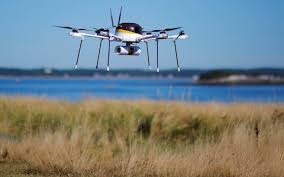
President Trump is expected to put his name to a funding act that has the American Civil Liberties Union and others up in arms—because it gives the power of the federal government to shoot down private drones if they’re considered a threat.
The power is included in the FAA Reauthorization Act which was passed this week. And it was a measure strongly pushed by Oklahoma U.S. Sen. Jim Inhofe.
“This is something we’ve been trying to do for many years,” he told the Washington Post. “it’s really a big,major deal.”
The five-year bill had not been passed since the 1980s but was approved on a 93-6 vote. Critics however contend the measure will give too much authority to the government to “disrupt,” “exercise control,” or “seize or otherwise confiscate” a drone that is deemed a “credible threat.”
In those cases, federal agencies would not have to get a warrant and that’s what worries civil rights groups. They contend it would result in Homeland Security and the Justice Department to shoot down anyone’s drone for any justifiable reason.
Both the American Civil Liberties Union and the Electronic Frontier Foundation have denounced the bill.
“These provisions give the government virtually carte blanche to surveil, seize, or even shoot a drone out of the sky — whether owned by journalists or commercial entities — with no oversight or due process,” an ACLU spokesperson told TechCrunch. “They grant new powers to the Justice Department and the Department of Homeland Security to spy on Americans without a warrant,” and they “undermine the use of drones by journalists, which have enabled reporting on critical issues like hurricane damage and protests at Standing Rock.”
“Flying of drones can raise security and privacy concerns, and there may be situations where government action is needed to mitigate these threats,” the ACLU said in a previous blog post. “But this bill is the wrong approach.”
Other privacy groups, including the Electronic Privacy Information Center, denounced the passing of the bill without “baseline privacy safeguards.”






